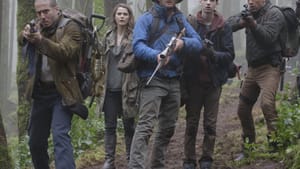Stay in the Loop
BSR publishes on a weekly schedule, with an email newsletter every Wednesday and Thursday morning. There’s no paywall, and subscribing is always free.
Girl guard
Thinking about gender at the movies

In movies, as in life, we need to see ourselves in an array of roles.
When we see heroes doing something, we want to emulate their behavior. Maybe a cellular microchip in our brain keeps us from leaping from the highest building like Superman, but you also can’t get my four-year-old nephew to take off his cape. The Olsen twins aren’t billionaires because of their great acting skills; their success stemmed from little girls seeing themselves in the pair’s fictional, extraordinary lives.
It’s not just small children. Major fashion movements have been launched from films — Bonnie and Clyde brought us very cool retro fashion in 1967; so did the 1977 Annie Hall look. In 1983, Flashdance gave us ripped sweatshirts and some true girl power. Today, what businessman doesn’t think a little Don Draper when he goes to buy a suit? And, adversely, Bette Davis, Humphrey Bogart, James Dean, and so many others made smoking look so desirable. Superheroes or super fashion, if we see it, we might just think it’s possible.
Monkey business
But the role model problem is Planet of the Apes sized. Can’t a gal get a break, even in the simian world?
I don’t know the actual societal gender roles in the ape community, but when the gorillas in the mist start speaking English, I can assume we have permission for any artistic license. The only female ape character in the film is wounded by childbirth. But, then again, the only female human’s story line is to provide comfort and to put in stitches.
In San Francisco, a city where almost half of the population is female, and 33 percent Asian — to say nothing of a large gay community — the only people of note, good or bad, are seemingly straight white males.
I know we have superheroines — Scarlett Johansson is going to use 100 percent of her brainpower in the new film Lucy — but it’s not just the lead, it’s the whole picture, both literally and figuratively. How many women are filling the other character roles in the film? As discussed in May, when Amy Schumer turns the camera and we see no women on the crew, it’s the perception that rings out, not the actual gender balance of her staff. In Dawn of the Planet of the Apes, where the only valuable children — well, actually the only children we see at all — are males, again, the damage is the subconscious messaging that others just don’t count, let alone exist at all.
It can be done.
Back in 1995’s summer blockbuster Independence Day, a macho black guy and a Jewish brainiac saved the world. A little stereotypic on some level, but the diversity wasn’t part of the story line, it just was. Also, the President’s top aide was a woman, and even though the mom may have been a stripper, at least she was also a warrior.
There is definitely a testosterone majority in the new action epic Snowpiercer, but interwoven with the males are at least are a couple of ballsy women. No one will fight harder for good or evil than Octavia Spencer and Tilda Swinton, and one head henchman is actually a henchwoman — an appropriately dolled-up gal.
An immodest proposal
But the examples are few and far between. It should not be news when there are women / gays / Asians / blacks / Latinos playing all sorts of characters.
Though I wrote about this before, and on the shoulders of so many others, I know that one rant or a dozen is not enough. One film every few years is not enough. We need to raise a fuss with every movie, every article, every way we can.
So I am calling for a new production code. A new Hays Office, except this time, it will be the Helen Hayes Office.
We need the Helen Hayes board that assists young filmmakers in thinking outside of the caped crusader box. Our young filmmakers are doing a great job telling stories that include the constantly advancing technologies, but not so much with all the human possibilities. The original Hays Office wanted to make stories smaller, make the ideas of womanhood smaller — the Helen Hayes office wants them to expand.
And just as Amy Schumer noticed this online journal, maybe the filmmakers of the inevitable sequel of Dawn of the Planet of the Apes will as well, and the story will go a little apeshit with women, too.
Sign up for our newsletter
All of the week's new articles, all in one place. Sign up for the free weekly BSR newsletters, and don't miss a conversation.

 Susan Beth Lehman
Susan Beth Lehman